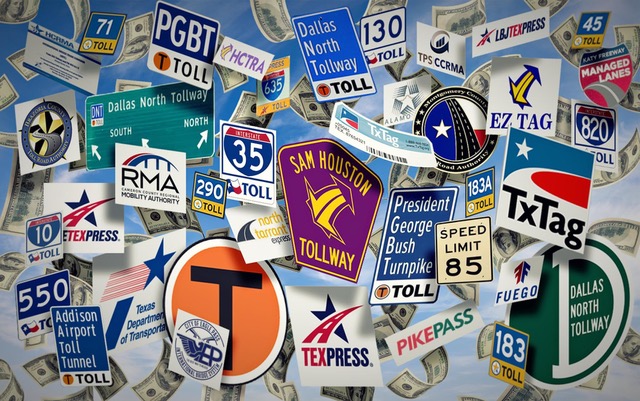Toll Trap
Texas has some of the harshest penalties in the nation for failure to pay toll road fees

The Dallas Morning News launched a yearlong investigation into toll roads to better understand how they developed and expanded across our state and, most importantly, how they affect everyday Texans.
Today, the Texas highway system is one of the largest in the country. It’s also the crown jewel and backbone of our economy. For the last two to three decades, toll roads have been the go-to method for building new highways quickly without higher taxes.
But that doesn’t mean toll roads have come cheap, our investigation found.
Imagine a fast-food restaurant that charges extra for a burger if you buy it during the lunch rush. Or a theater that charges more to see the latest hit movie the first few days it opens.
Every day thousands of Texas motorists pay a premium to use toll roads to get to work, to see family, or to reach help a few minutes sooner in the case of emergencies. Some facilities raise their prices — when traffic is worst. Sometimes people who live in areas surrounded by toll roads with few free options nearby are given a daily choice: pay the premium or risk being late because the free roads are a mile or more away in heavily congested communities.
While toll roads have allowed the state’s transportation network to keep up with unprecedented growth, our investigation reveals some of the consequences of opening the door to so many tolls. Through our reporting, we found a story of economic desperation, officials seduced by the promise of quick-fix solutions, and above all, thousands of motorists just trying to make sense of it all.
